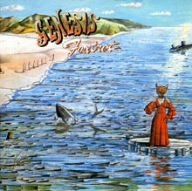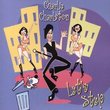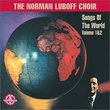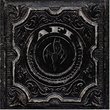| All Artists: Genesis Title: Foxtrot (Bonus Dvd) (Mlps) Members Wishing: 8 Total Copies: 0 Label: EMI Japan Release Date: 1/28/2009 Album Type: Super Audio CD - DSD, Import Genres: Pop, Rock Style: Number of Discs: 2 SwapaCD Credits: 2 UPC: 4988006869585 |
Search - Genesis :: Foxtrot (Bonus Dvd) (Mlps)
 | Genesis Foxtrot (Bonus Dvd) (Mlps) Genres: Pop, Rock Japanese only two disc (SACD Hybrid CD + NTSC/Region 0 DVD) pressing of this album housed in a mini LP sleeve. EMI. |
Larger Image |
CD DetailsSynopsis
Album Description Japanese only two disc (SACD Hybrid CD + NTSC/Region 0 DVD) pressing of this album housed in a mini LP sleeve. EMI. Similar CDs
|
CD ReviewsDefinitive edition of definitive Genesis album coca-ebola | United Kingdom | 07/07/2009 (5 out of 5 stars) "This is specifically a review of the SACD/DVD double-disc edition of "Foxtrot".
Let's start with the DVD - the distinguishing factor in this package. There are two visual components here. The first is the standard "making of..." documentary, with all five (ex)-bandmembers offering their reminisences. Unfortunately for every interesting unfamiliar detail, some piece of information seems to have been omitted - in particular very little is said about the inspiration behind "Supper's Ready" (the story of Gabriel's wife becoming "demon possessed" is well-known from the critical review documentaries, but it would be interesting to hear his current thoughts on the matter!). It's also disappointing that no-one in the band (save Gabriel) has a good word for "Get 'Em Out By Friday", and that they can't even remember "Can-Utility And The Coastliners". As to the live performance ingredient - the DVDs in this reissue programme often seem to be out-of-sync. It would have made sense to have the French TV footage from the Paris Bataclan on this disc, as a document of the post-Foxtrot tour. Instead it appears as part of the "Selling England..." package, whilst here we have the Belgian "Pop Shop" TV footage, which properly belongs to the "Nursery Cryme"-period. Still, it's an essential piece of visual history - a document of the band just before Gabriel began to make extensive use of masks, costumes and bizarre make-up. Its arguable highlight is the performance of that non-album fan-favorite "Twilight Alehouse" - it's missing its instrumental third verse, but the lyric is `uncensored' (unlike the studio version!) and, after the finger cymbals and nervous facial expressions of the song's first half, Gabriel and Collins enjoy themselves immensely during the final full-tilt instrumental section. Similarly, "Return of the Giant Hogweed" is mysteriously missing its "country gentlemen" verse, but its a must-see just for Gabriel threatening the cameraman with his mic stand during the finale. The album itself - quite simply, it's Genesis's greatest contribution to progressive music. Enough has been said about some of the songs already, so I'll keep it brief. "Watcher Of The Skies" (an alien's-eye-view of a deserted Earth) may have a few lines that don't quite scan or are hard to enunciate (as lyricist Rutherford admits), but that's a microscopic blemish. I can't think of a more powerful opener for an album - or a concert. The lyrics of "Supper's Ready" will never cease perplex people and (in its later stages) annoy non-Christians...but never mind the lyrics, have you ever heard a more musically-substantial twenty-minute song? Truly, there's no fat on this one - no solos to slacken the momentum, even Banks's organ solo (played in 4/4 over a 9/8 rhythm) is not an improvisation but a written-part clearly integral to the composition; no undue self-repetition (only the "reprise" at the end which is necessary to uphold the narrative). And, just as importantly, it's not lacking in textural variety - just about all the instrumentation at their disposal is brought to bear, and in just the right proportions. Hackett readily owns up to the fact that "Horizons" is a JS Bach rip-off, but it's over and out in under two minutes, and no-one could object to hearing it. "Time Table" is the nearest thing to a weak spot on the album - the moralistic lyrics pining for a long-gone (mediaeval?) era "when honour meant more to a man than life" are just a little ridiculous, but it's melodically and harmonically compelling enough not to be programmed out. "Get 'Em Out By Friday" is a favorite of many fans, an eight-minute mini-epic filled with interesting harmonic and textural detail, in support of a futuristic-nightmare tale of state-sponsored genetic engineers with the property market in the palm of their hand, driving a family out of their home (at first), and an entire town out of the human race (at the last). "Can-Utility And The Coastliners" is the hidden gem of the album - partly because it was so seldom performed live. As musically complex as "Friday" or "Supper", at only five-and-a-half minutes, it feels like a ten-minute plus epic condensed down to a more compact length. (It was, in fact, originally performed in early 1972 in a longer and heavier arrangement, even more bamboozling as a result!) The lyric - it may have something to do with the King Canute legend, but...don't ask me! Genesis never surpassed "Foxtrot", and you could argue that they never equalled it. The listener wouldn't necessarily notice on the first, or even fifteenth, play, but with the next studio album they immediately began to simplify their sound and lose some of their "progressiveness" as a result. The synthesizers came in, the music became fractionally more rhythmically-regular, and rhythm-section-centred - generally, closer to normal rock. Here, in contrast, the Genesis trademarks from the previous two albums are all present and correct - the multiple-acoustic-guitar textures, Gabriel's flute (and other woodwind instruments), occasional tuned percussion, Banks's concentration on organ and mellotron, and the frequent absence of drums and bass (somehow bringing the shifting time-signatures and tempos into even clearer focus) - and what's more, they've never been used more effectively." |



